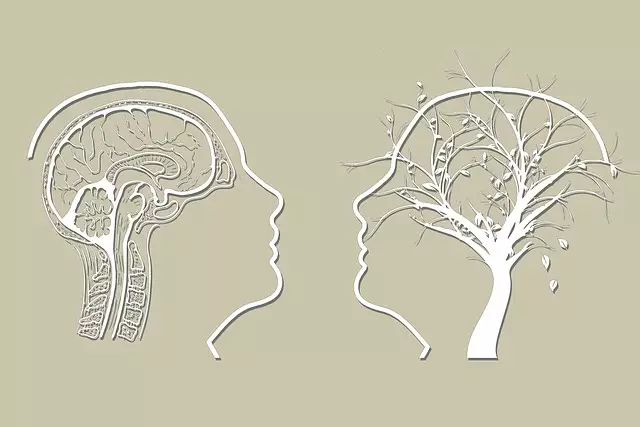The Kaiser Permanente mental health center in Golden employs a unique RFM framework (Recency, Frequency, Monetary value) and holistic approach to build resilience among healthcare providers. By identifying burnout risks early through engagement with support services, the center empowers professionals to prioritize self-care. Key initiatives like mindfulness meditation, mental wellness journaling, and tailored resilience exercises foster emotional well-being. The RFM technique, combined with evidence-based practices and compassionate care, creates a supportive environment for stress management, improved communication, and enhanced emotional agility. Success is measured through attendance rates and qualitative feedback, allowing the center to continually refine programs for healthcare professionals' dynamic needs.
“Resilience is a powerful tool for navigating life’s challenges. The Kaiser Permanente Mental Health Center Golden has pioneered an innovative approach using RFM (Recovery, Flexibility, and Mastery) exercises to build resilience. This article explores how their method enhances well-being. We’ll delve into the core principles of RFM, learn from the successful implementation at Kaiser Permanente, and discover best practices for designing and delivering these exercises. Additionally, we’ll discuss creating a supportive environment and measuring the impact of RFM training, offering insights into continuous improvement.”
- Understanding RFM and Its Role in Resilience Building
- The Kaiser Permanente Mental Health Center Golden Approach
- Designing Effective Resilience Exercises
- Implementing RFM in a Supportive Environment
- Measuring Success and Continuous Improvement
Understanding RFM and Its Role in Resilience Building

At Kaiser Permanente mental health center Golden, understanding RFM—a framework that evaluates an individual’s Recency, Frequency, and Monetary value of engagement with a service—is key to fostering resilience among healthcare providers. This simple yet powerful tool helps identify at-risk individuals who may be exhibiting signs of burnout, enabling targeted interventions early on. By analyzing how often and recently someone has engaged with support services, as well as their level of financial commitment, RFM provides valuable insights into an individual’s overall wellness and connection to care.
Implementing RFM in conjunction with comprehensive burnout prevention strategies for healthcare providers is a holistic approach to emotional regulation. It encourages professionals to prioritize self-care, maintain healthy boundaries, and develop coping mechanisms that strengthen their resilience. This proactive stance not only benefits the well-being of individual healthcare workers but also improves patient outcomes by ensuring caregivers are equipped to offer optimal care with sustained passion and commitment.
The Kaiser Permanente Mental Health Center Golden Approach

The Kaiser Permanente Mental Health Center Golden Approach prioritizes holistic wellness, offering a unique and comprehensive strategy for resilience building through various exercises. Recognizing that mental health is an integral part of overall well-being, the center has developed innovative programs to empower individuals. One such initiative is their focus on mindfulness meditation, which encourages individuals to cultivate present-moment awareness, leading to improved emotional intelligence. This practice enables people to navigate life’s challenges with greater composure and clarity.
Furthermore, the Kaiser Permanente Mental Health Center Golden Approach promotes mental wellness journaling exercise guidance. By encouraging individuals to reflect and document their thoughts and feelings, this technique fosters self-awareness and provides a safe space for processing emotions. This simple yet powerful tool can significantly contribute to building resilience by helping individuals identify patterns, gain insights, and develop personal growth strategies. The center’s inclusive approach ensures that these exercises are accessible and beneficial for all those seeking to enhance their emotional well-being.
Designing Effective Resilience Exercises

Designing effective resilience exercises involves tailoring activities to meet the diverse needs of individuals and groups within a Kaiser Permanente mental health center in Golden. The first step is assessing the current coping mechanisms and vulnerabilities present among participants. This can be achieved through self-awareness exercises that encourage introspection and open communication, allowing for a deeper understanding of individual and collective emotional landscapes. Incorporating cultural sensitivity in mental healthcare practice is crucial; ensuring exercises resonate with diverse backgrounds fosters inclusivity and enhances engagement.
Once baseline data is established, activities should focus on developing coping skills tailored to specific challenges. These could include stress management techniques, problem-solving strategies, or social support building. For instance, group activities like role-playing scenarios can help individuals practice assertiveness and communication skills in safe, controlled environments. By iteratively refining exercises based on feedback and outcomes, mental health centers at Kaiser Permanente Golden can create robust resilience-building programs that empower clients to navigate life’s challenges more effectively.
Implementing RFM in a Supportive Environment

Implementing RFM (Resilience, Flexibility, and Mastery) techniques within a supportive environment is paramount for fostering mental wellness at Kaiser Permanente mental health center Golden. This approach goes beyond traditional therapy by focusing on building coping skills development and enhancing individuals’ ability to navigate life’s challenges. The center creates a safe space where individuals can explore their emotions, develop resilience against stress and anxiety, and gain the tools needed to prevent depression.
Through tailored Mental Wellness Coaching Programs, the Golden mental health center encourages participants to embrace a growth mindset, fostering both personal development and emotional agility. These programs are designed to empower individuals to cultivate mastery over their lives by learning effective strategies for managing stress, improving communication, and enhancing overall mental wellness. By combining evidence-based practices with a compassionate setting, Kaiser Permanente aims to revolutionize the way individuals approach their mental health, ensuring they emerge with strengthened coping mechanisms ready to confront life’s uncertainties.
Measuring Success and Continuous Improvement

Measuring success is a vital component of any resilience-building initiative, especially within institutions like Kaiser Permanente mental health centers in Golden. By establishing clear and quantifiable goals, the effectiveness of these programs can be accurately assessed. One key metric could be tracking healthcare provider attendance at such exercises, as higher participation rates indicate increased engagement and potential long-term behavioral shifts.
Additionally, qualitative feedback forms can gather insights into the perceived benefits of these sessions. This data can highlight areas that resonate most with providers, offering valuable guidance for refining and improving these resilience-building strategies, particularly focusing on burnout prevention techniques and empathy-building exercises. Regular evaluation ensures that these programs remain relevant, effective, and tailored to the unique needs of healthcare professionals in a dynamic environment.
Resilience is a vital component of well-being, especially in navigating life’s challenges. The Kaiser Permanente Mental Health Center Golden Approach, with its RFM (Resources, Fortitude, and Mindset) model, offers a proven framework for building resilience. By designing effective exercises that foster these three key elements, individuals can enhance their ability to cope with stress and adversity. Implementing RFM in a supportive environment encourages continuous improvement, as measured by individual success stories and outcomes. This approach serves as a testament to the power of resilience-building programs in fostering mental health and overall well-being.






